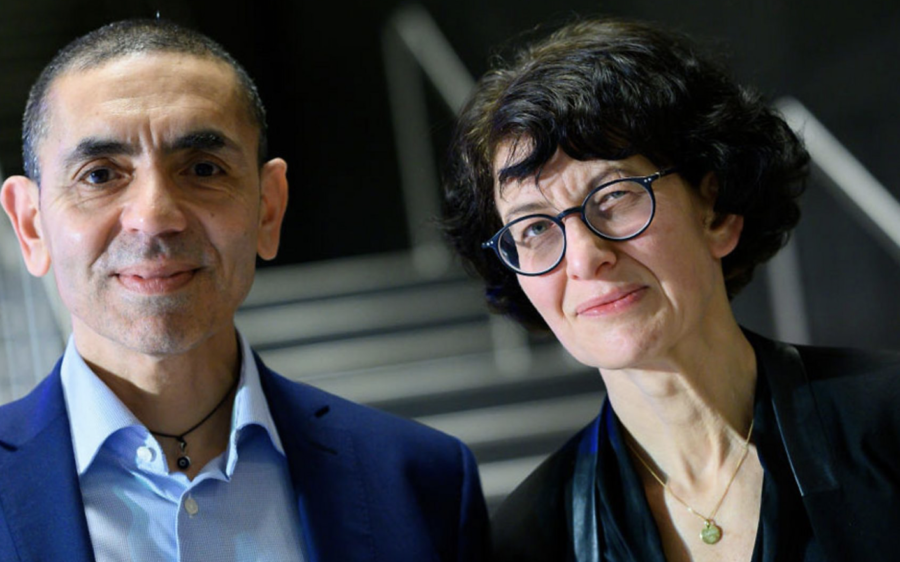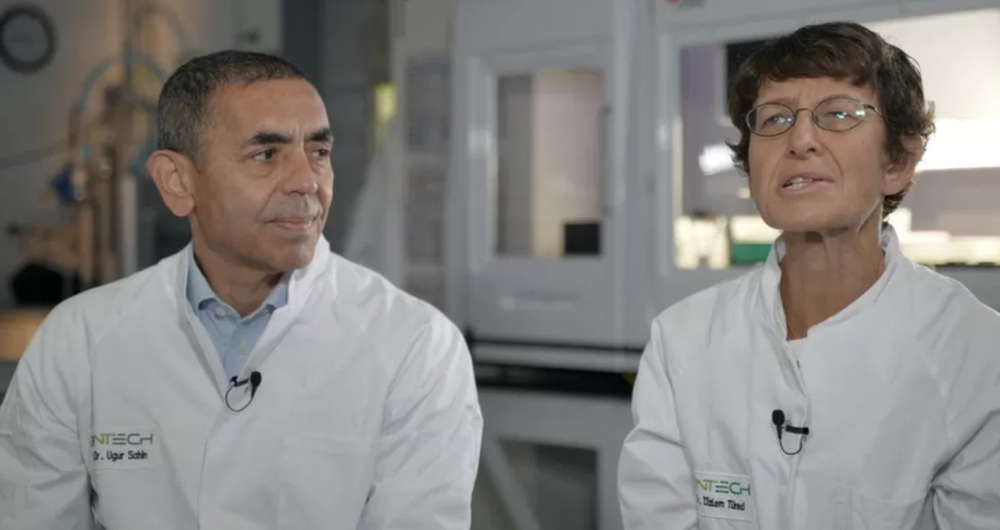Despite being the husband and wife duo behind one of Covid’s most popular vaccines, they are little recognised in the UK, according to the BBC.
The German business BioNTech was established in 2008 by professors Ugur Sahin and Ozlem Tureci with the goal of researching novel cancer treatment methods utilising messenger RNA (mRNA).
They teamed up with Pfizer to employ the same methodology to develop a Covid vaccine when the epidemic hit.
Now, the doctors are optimistic that it might result in new therapies for tumours like melanoma, bowel cancer, and others.
A trial being conducted by BioNTech involves giving patients a customised vaccine to activate their immune systems against their condition.
The mRNA technology in use instructs or provides a blueprint to cells so they can manufacture an antigen or protein.
This antigen is a component of the virus’ spike protein in Covid. It would serve as a marker on the surface of tumour cells in cancer.
 The founders of BioNTech claim that their cancer research has made “a number of breakthroughs.”
The founders of BioNTech claim that their cancer research has made “a number of breakthroughs.”
As a result, the immune system learns to identify and specifically target damaged cells for eradication.
Prof. Tureci said the following on Sunday with Laura Kuenssberg on the BBC: “By using mRNA as a blueprint, you can instruct the body to make a medication or a vaccination. Additionally, when mRNA is used as a vaccine, the mRNA serves as a pattern for the enemy’s “wanted poster,” in this case, the cancer antigens that distinguish cancer cells from healthy ones.”
Covid was the first company to demonstrate the viability of using mRNA to make vaccines. However, the success of mRNA vaccines against the pandemic has inspired researchers to use the technology against cancer.
Long before the pandemic, BioNTech began conducting mRNA cancer trials, and these studies have already produced some promising results.
According to Prof. Tureci, chief medical officer of BioNTech, “every step, every patient we treat in our cancer trials helps us find out more about what we are against and how to handle that.”
“As scientists, we are never confident in our predictions of a cancer cure. We have made a number of advancements, and we will keep working on them.”
There must be caution. Numerous promising cancer studies fail. We might have to wait a while to find out whether BioNTech’s cancer therapies for melanoma, bowel cancer, and other tumour types actually live up to the expectations.
The legal battle
However, there is little question that Covid’s mRNA vaccines have been incredibly effective and profitable for BioNTech, Pfizer, and Moderna.
But the development of mRNA vaccines is the subject of a significant legal dispute.
A US company called Moderna has filed a lawsuit for patent infringement against Pfizer and BioNTech, essentially alleging that critical components of its mRNA technology were stolen.
The chief executive officer of BioNTech, Prof Sahin, declares that the business would vehemently refute the accusations.
He claimed, “Our innovations are unique.
We developed these types of medicines after 20 years of research, and we will fight to protect our intellectual property.
The Covid vaccinations will continue to be distributed notwithstanding these patent disputes because all booster shots provided by the NHS are mRNA vaccines. The pandemic marked the maturation of this technique. Now the question is, can it combat cancer?




